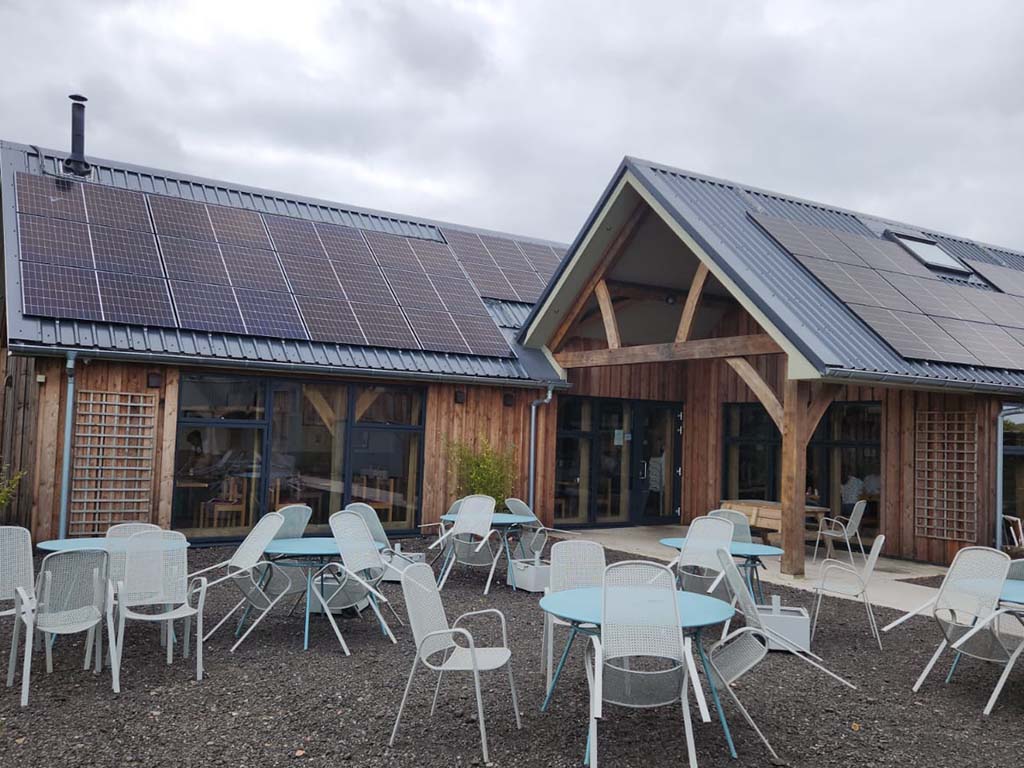How Long Do Solar Panels Last?

Surely, you must have considered this multiple times while evaluating whether or not to invest in one! It is a massive cost for the business, especially if you are a new business owner with lots of overhead costs. But let's just start with the basics and first understand what Commercial Solar is.
What Is A Commercial Solar?
Although modern solar power has existed for ages, many commercial businesses still rely heavily on standard electricity, which means they do not use Fossil Fuels to generate electricity. However, switching to solar power can save companies money and significantly reduce their carbon footprint in the long run.
Unlike every other solar power source, commercial solar power harnesses sunlight's power, turning this superpower renewable source of energy into electricity that powers office buildings, factories, warehouses, and more. Interesting, right?
Where Can You Install The Commerical Solar Panel?
Just like residential solar installations, commercial solar installations are almost always on the roofs of their buildings because that is where you capture the sunlight directly and with the most expansive area where the panels can be easily placed. Roof installation is a good option for commercial solars, especially since office buildings, warehouses, factories, and other similar spaces often have cars and flat roofs, which are ideal.
However, the roof is not the only place where commercial solar panels are installed. Spaces such as parking lots can also be turned into solar carpools, which are basically open-air garages with solar-powered roofs. Other alternative options include ground-mounted solar arrays; there are even panels that can tilt and elevate during certain hours to catch the optimal amounts of sunlight. Wow, now that's amazing!
How Much Does A Solar Panel Cost?
Well, the starting point would be what your business or company aims for; it can be simply reducing business electricity rates, obtaining complete independence from your energy supplier, eliminating the need for business energy bills, or even better, moving to low-carbon energy consumption. The costs and benefits of each are worlds apart!
It varies, but as of this year (2024), the average cost of a commercial solar installation is between £1,000 and £1,500 per kWp (kilowatt peak). For a medium-sized business that requires a 30kWp system, this translates to an estimated cost of £30,000 to £45,000.
Several factors affect the pricing of solar panels:
- Type of Solar Panel: Products like solar roof tiles are usually costlier than traditional panels but satisfy niche customers.
- Installation Complexity: Businesses with non-standard roof structures or those requiring ground-mounted panels may face higher costs.
- Additional Equipment: PV solar battery storage systems, advanced monitoring setups, and EV charging (amongst others!) also can add to the overall investment.
The overall costs to get a solar panel installed do seem substantial. However, it's worth considering the long-term energy savings, potential government incentives, and benefits of being a carbon-neutral (or low-carbon) business for your customers and staying ahead of the competition.
The price of solar panels has steadily dropped over the last few decades and is currently at its historically lowest, making solar more accessible to all businesses.
It's vital to fully grasp the costs of solar panels because, just like any business, it is a huge infrastructure investment. The costs and benefits will vary depending on your business needs and how well you can utilise what is currently available. Understanding and optimising for all key cost factors explained in this article will help you see both sides of the coin before you play your hand, and this way, you will know what your business is getting into, why it is, and how to budget for it accurately.
How Long Do Solar Panels Last?
Since the early 2000s, the amount of solar panels installed worldwide has grown exponentially and is expected to continue for decades. By the end of 2015, an estimated 222 gigawatts worth of solar energy had been installed worldwide. According to a recent report from the International Renewable Energy Agency, that number could reach 4,500 GW by 2050. (source:Greenbiz.com)
Due to the constant rise in energy costs and a growing need to reduce our carbon emissions and impact on the environment, solar panels are becoming an increasingly popular form of renewable energy source for homes and businesses in the UK. The good news is that the latest solar panel models on the market have an expected lifespan of 40-50 years and warranties that will keep them protected for at least half of that time.
These warranties guarantee the performance levels of solar panels over the first half of their lives. Most warranties guarantee that the performance will not drop below 80% before the warranty ends. In fact, some panels have been known to remain over 80% efficient even past the end of their lives.
If good care is taken of the solar panels, they could easily last over 40 years after installation. However, it is essential to remember that their performance levels will have deteriorated slightly over that time period.
How To Extend The Life of Solar Panels?
Solar panels are designed and manufactured to endure extreme and unpredictable weather conditions over prolonged periods. This is why this renewable energy source is considered so durable, and little to no maintenance is required over the course of its life. If the solar panels are kept clean and in good condition, they can perform at high levels of efficiency for quite a long time.
It is also important to monitor the panel output regularly, either via the inverter or your monitoring system. If the output is less than the expected amount, you should be able to spot it, find out why immediately, and get your panels back to running at optimum efficiency.
It is also incredibly important to ensure that your solar panels are installed correctly, allowing them to run effectively and to the best of their capabilities.
This is why you should always use an MCS-accredited company to install your solar panels and ensure your installer is a qualified and experienced professional. Suppose your panels are damaged during installation or not connected properly, and you used an MCS-accredited company. The warranty will cover you in that case, and a repair/replacement can be arranged immediately. Another thing to note is that solar panels are only as good as their inverter.
Traditional string inverters tend to have a shorter lifespan than solar panels (typically around 10-15 years). If your inverter prevents the maximum amount of energy from being processed, you will not be getting the most out of your solar panels. Make sure you keep your inverter up to date and in good condition if you want to receive the full benefits from your solar panels.
How To Maintain The Solar Panels?
A well-maintained solar panel will last longer than one that doesn't. So, if you keep your solar panels well maintained, you can expect to enjoy them for the full length of their estimated lifespan. There are a few ways to do this, helping the efficiency levels stay at their best. While solar panels are self-sufficient after installation, an annual or biannual clean can help maintain them.
It is important to remember that you only need to clean solar panels once or twice a year, but if you have had a long period with no rain, then it is advised that you give them an extra cleaning once again. Some quick cleaning tips:
- Clean your solar panels in the morning or evening, as they can get very hot during the day.
- You should always start by gently sweeping leaves and debris from the panel's surface. Make sure you use a soft-bristled brush.
- Spray the panels with your garden hose, but use a gentle stream.
- If the panels need to be cleaned further in a few stubborn areas, wipe them down with warm water and a soft cloth to avoid scratching.
Safety precautions when cleaning:
- Always refer to the manufacturer's guide before you use any cleaning products on the panels.
- Always take precautions when reaching the panels, as they tend to be high. If in doubt, call professional panel cleaners.
- Always clean only the surface of the panels; never touch the wiring underneath. A trained and qualified solar panel cleaning service can clean under the panels.
Lastly, the other thing you can do to maintain your solar panels is ensure that nothing is hanging over them, like tree branches. The shade they produce will greatly reduce the overall efficiency of your panels, but they could also damage the panels if they fall on them. Any cracks on the surface of your solar panel could also prove very dangerous as water can seep into them freely. This could lead to the disintegration of the contacts, resulting in poor connectivity.
Are There Any Government Incentives Available For Solar Panels?
Yes, very often, there are various programmes and incentives (Grants) for solar and renewable energy. Currently, we have 4 programmes in different regions which are offering solar and renewable grants for small and medium enterprises. The programmes are listed below:
To apply, visit the links above and register your business.






